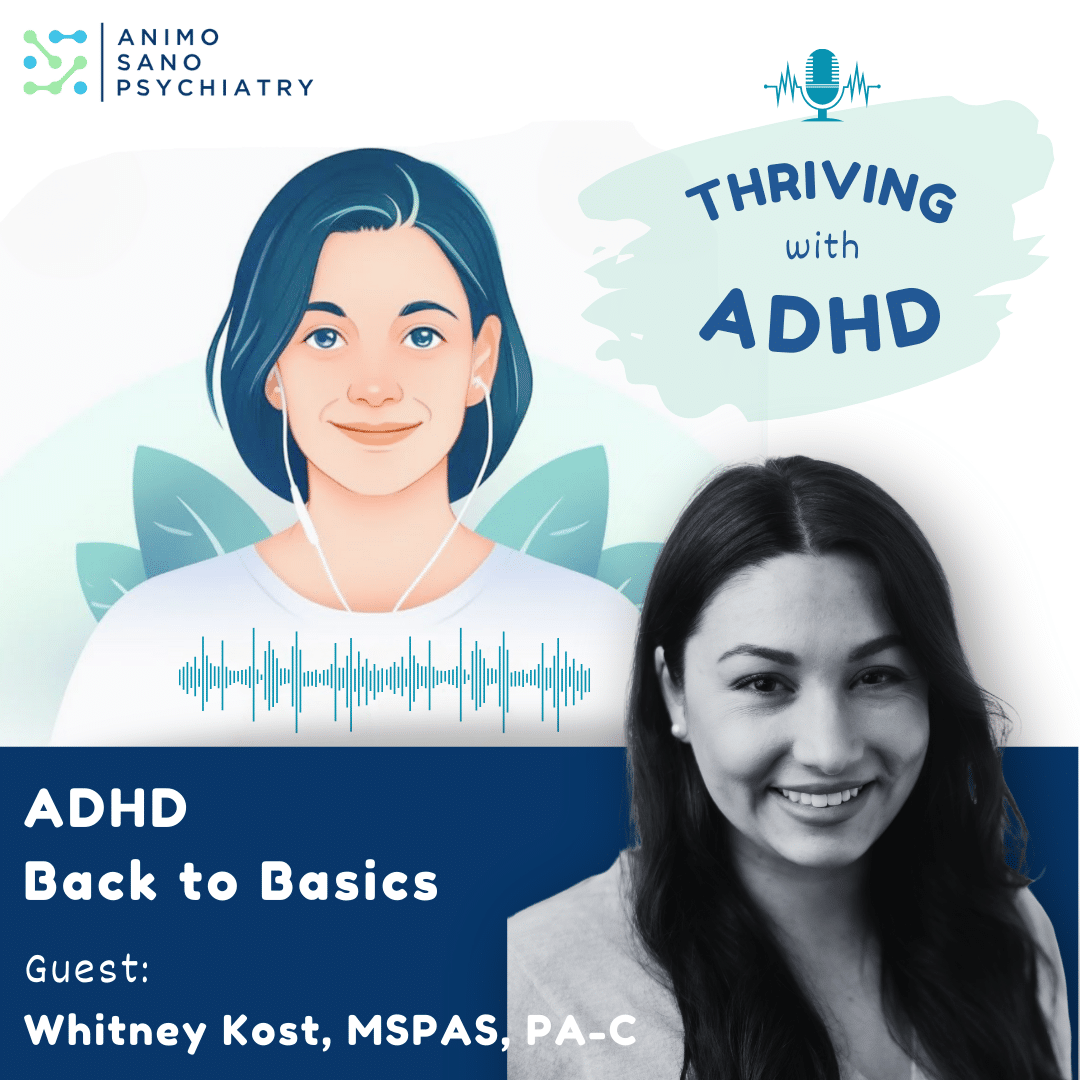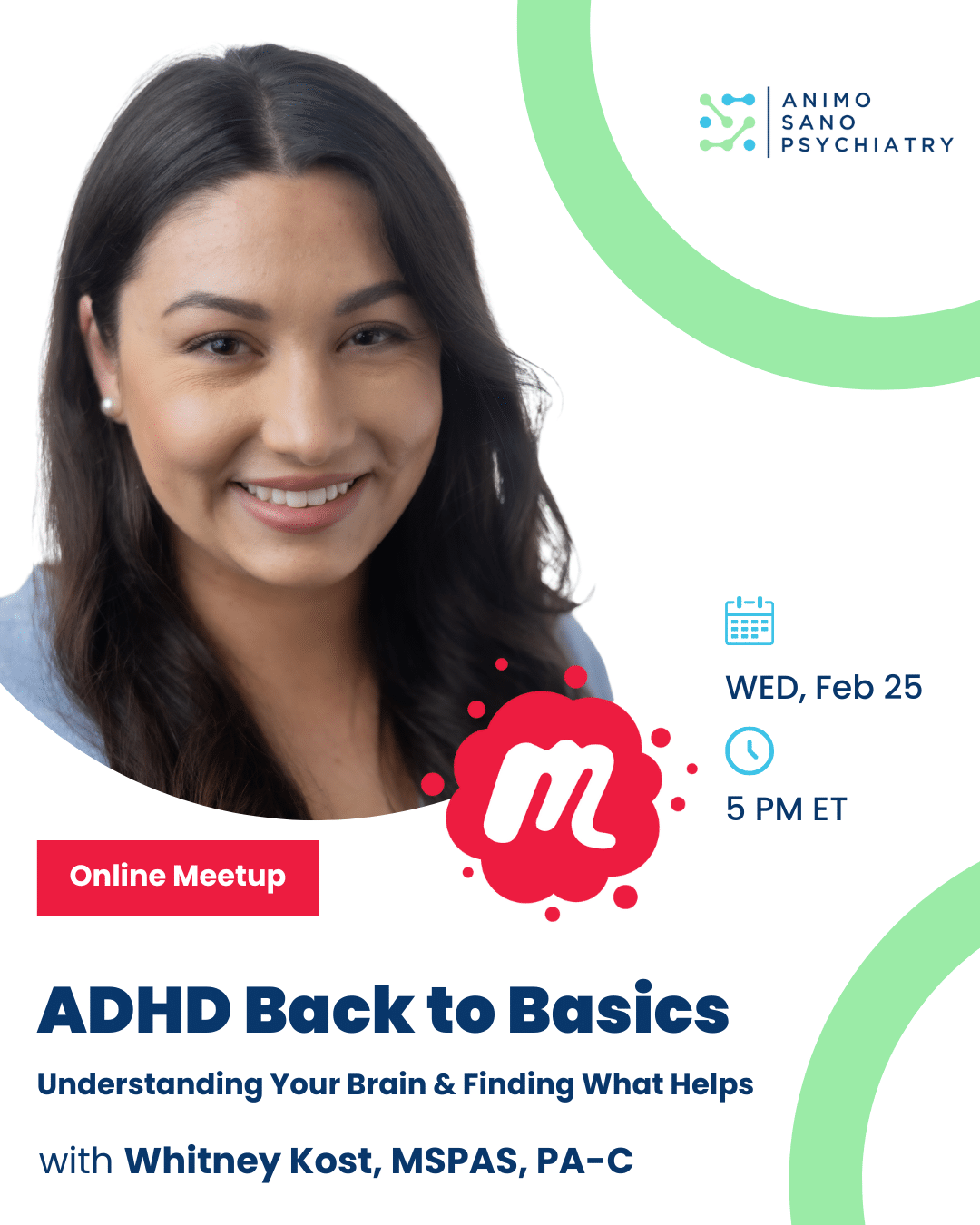
Living with ADHD already brings challenges, but when anxiety is also part of the picture, everyday life can feel even more complicated. The two conditions often overlap, creating a mix of racing thoughts, restlessness, and difficulty focusing. Many people don’t realize just how common this pairing is—or how much it can impact daily routines, relationships, and overall well-being. A deeper understanding of the coexistence of ADHD and anxiety is important for better mental health.
How Common Is It?
Research shows that anxiety disorders are far more common in people with ADHD than in the general population. According to the CDC, about 14% of children with ADHD also have an anxiety disorder, compared to just 1% of children without ADHD. In adults, the numbers are even higher—adults with ADHD may experience an anxiety disorder at some point in their lives.
This means if ADHD is part of your story, anxiety may be as well. The two often overlap, and that overlap matters.

Why ADHD and Anxiety Feel So Entangled
When both conditions coexist, they don’t simply add up—they interact:
- Blurred symptoms. Difficulty concentrating, restlessness, sleep problems—are caused due to both adhd and anxiety.
- One fuels the other. Missing deadlines or losing focus can trigger worry (“What if I fail again?”), which only makes it harder to focus.
- Earlier and more severe challenges. Research finds that people with both ADHD and anxiety often experience symptoms earlier and with greater intensity than those with ADHD alone.
It’s a cycle: distraction feeds worry, and worry feeds distraction. Breaking that cycle requires treating both sides of the equation.
Treatment Approaches That Work
When ADHD and anxiety coexist, treatment works best when it’s flexible and individualized. Here are some strategies that clinicians often consider:
- Prioritizing what’s most impairing. If anxiety is causing the most daily disruption, addressing it first can help open the door to ADHD treatment. Sometimes the opposite is true—treating ADHD symptoms makes anxiety easier to manage.
- Medication choices
- Stimulants remain the first-line treatment for ADHD, and many people tolerate them well even with anxiety. But if anxiety worsens, adjustments can be made.
- Non-stimulant options like atomoxetine may be helpful when anxiety is significant.
- SSRIs and other anti-anxiety medications are sometimes added when anxiety is severe, but always under careful supervision.
- Stimulants remain the first-line treatment for ADHD, and many people tolerate them well even with anxiety. But if anxiety worsens, adjustments can be made.
- Therapies that address both. Cognitive Behavioral Therapy (CBT) is effective for managing both worry and ADHD-related challenges. Mindfulness and structured routines can also provide grounding strategies to reduce stress.
Everyday Strategies to Ease the Strain

Treatment is important, but so are small, daily habits that make life with ADHD and anxiety more manageable:
- Check in with yourself. Ask: “Is distraction or worry weighing on me more today?” Focus on that first.
- Track patterns. A simple journal can help you notice when anxiety spikes or focus fades.
- Layer support. Medication, therapy, and lifestyle strategies work best together—like using reminders, body doubling, or exercise alongside professional care.
- Stay flexible. What helps may shift over time. Regular check-ins with your provider allow treatment to evolve with you.
Final Thoughts
ADHD and anxiety together can feel like a constant push and pull—your attention scattered, your mind racing. But coexistence doesn’t mean helplessness. With the right mix of treatment, therapy, and practical tools, it’s possible to calm the noise and regain control of your daily life.
If you or someone you care about is navigating both ADHD and anxiety, remember you don’t need to figure it out alone. Support, structure, and compassionate care can make the load lighter—and help you move forward with clarity.
Responsibly edited by AI
Other Blog Posts in
Animo Sano Psychiatry is open for patients in North Carolina, Georgia and Tennessee. If you’d like to schedule an appointment, please contact us.
Get Access to Behavioral Health Care
Let’s take your first step towards. Press the button to get started. We’ll be back to you as soon as possible.ecovery, together.





